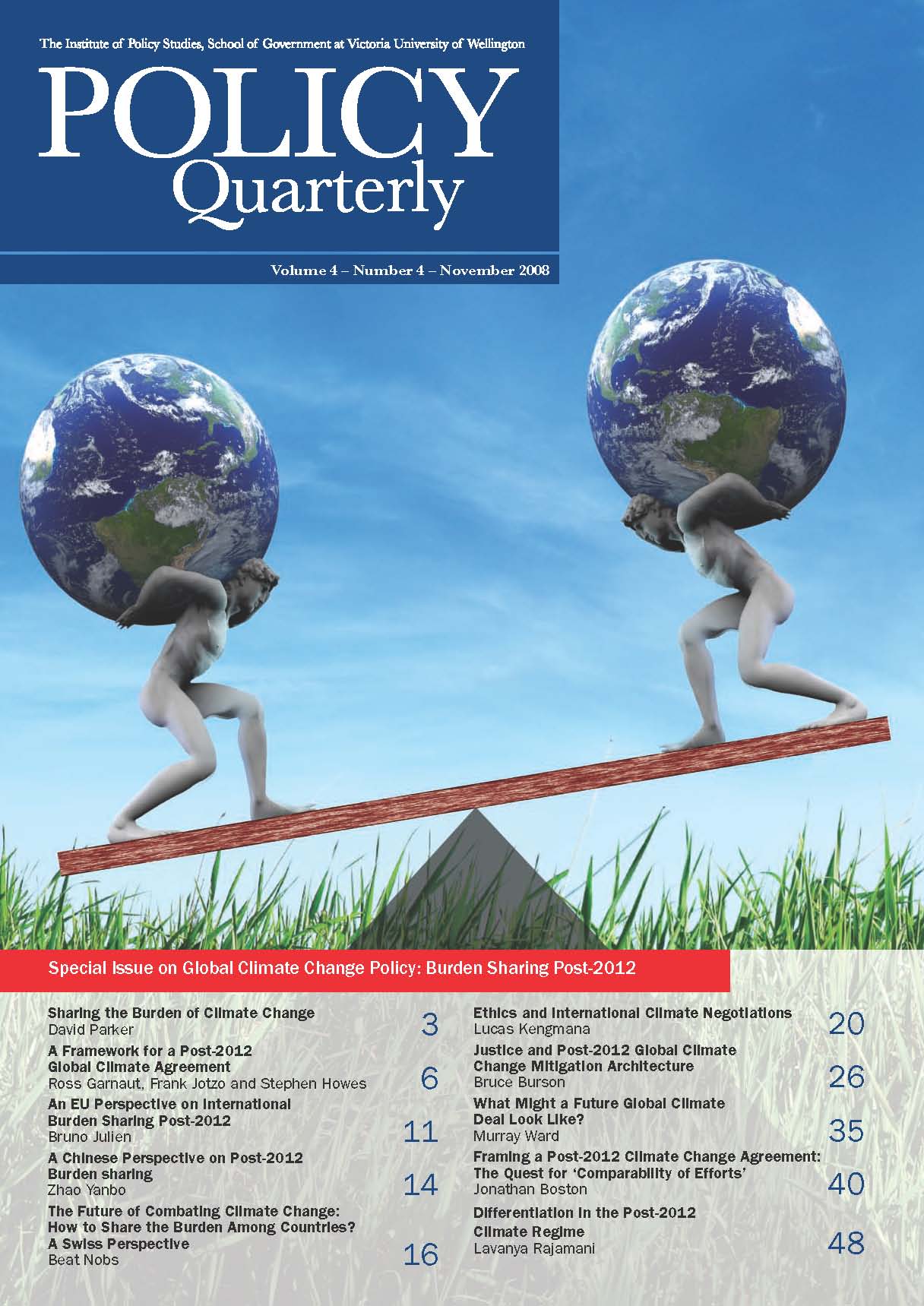A framework for a post-2012 global climate agreement
DOI:
https://doi.org/10.26686/pq.v4i4.4277Keywords:
price-based and quantity-based commitments, emissions entitlements, Kyoto Protocol, Garnaut Review, Clean Development Mechanism (CDM), International Adaptation Assistance CommitmentAbstract
Global greenhouse gas emissions are on a steeper growth trajectory than assumed in most scenarios that underlie current international policy discussions and negotiations. Effective global climate change mitigation action will require speed, depth and breadth well beyond any efforts seen to date, and will need to involve all major emitters, including developing countries (Garnaut et al., 2008). To achieve a comprehensive global agreement at or after the Copenhagen climate conference, a principles-based framework for mitigation is needed. Here we outline a system that adds up to a global solution, and that could be broadly acceptable. It involves internationally tradable emissions rights allocated across countries, with allocations moving over time to equal per capita allocations. Developing countries would receive increasing emissions entitlements, linked to their GDP growth, for a transitional period. Binding emissions targets would apply to all developed and high-income countries plus China from the outset.
Downloads
Downloads
Published
Issue
Section
License
Permission: In the interest of promoting debate and wider dissemination, the IGPS encourages use of all or part of the articles appearing in PQ, where there is no element of commercial gain. Appropriate acknowledgement of both author and source should be made in all cases. Please direct requests for permission to reprint articles from this publication to Policy-Quarterly@vuw.ac.nz.



